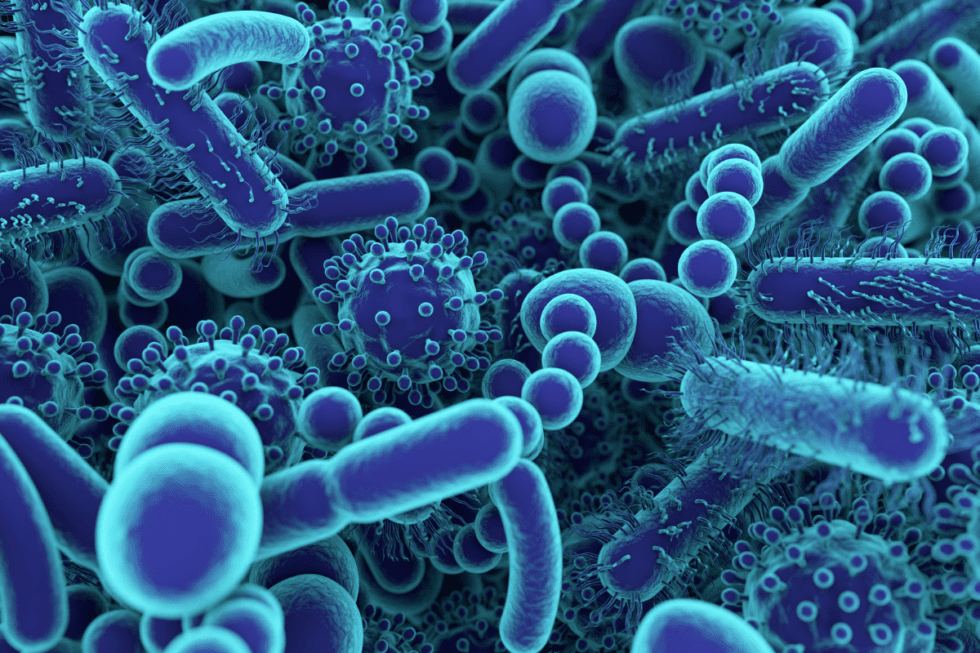
The Best POST-biotic Butyrate for Mast Cell and Histamine Supports
Most of us with Mast Cell Activation Syndrome or Histamine Intolerance have gut issues.
These can be:
- Constipation
- Diarrhea
- Leaky Gut
- Food Sensitivities
- Bloating
- Discomfort after eating
- Gut aches
- Dysbiosis
I’ve had all kinds of gut issues. Really from childhood through my adult life. As a kid, I would have loose stools or outright diarrhea. Every day.
And even as an adult, it seemed to happen no matter what I ate. And the diarrhea made it harder for my gut to absorb nutrients.
Which then made my Mast Cell Activation Syndrome and Histamine Intolerance worse.
I would also get embarrassing bloating. I hated those after-dinner pictures where I had balloon belly.
I literally looked 6 months pregnant.
I would get stabbing pains and dull aches in my gut, too. I noticed I always felt better in the morning before I’d eaten anything.
Have you had any of these symptoms?
Or do you get constipation instead? If so, you’ll want to keep reading too.
You may be wondering how my gut got so bad.
Several years ago, I went to India. While I was there, I got dysentery. That was awful. My gut didn’t really recover.
But then, it got even worse.
I had a hydrogen water machine that I sent off for repairs. While it was broken, it sat with water in it. And they hadn’t sanitized it before sending it back like they were supposed to.
I drank the water for 2 days and realized something was terribly wrong.
I tested the water, and it was full of bacteria and candida. And when I tested my gut, I had severe candida and clostridia overgrowth.
As you can imagine, I was so mad they didn’t disinfect the machine. I’d been working really hard on my gut. Just to have it all fall apart and be the worst it’s ever been in my life.
So, I tried all kinds of things to help my gut. Some things would help a little. Some things would make it worse.
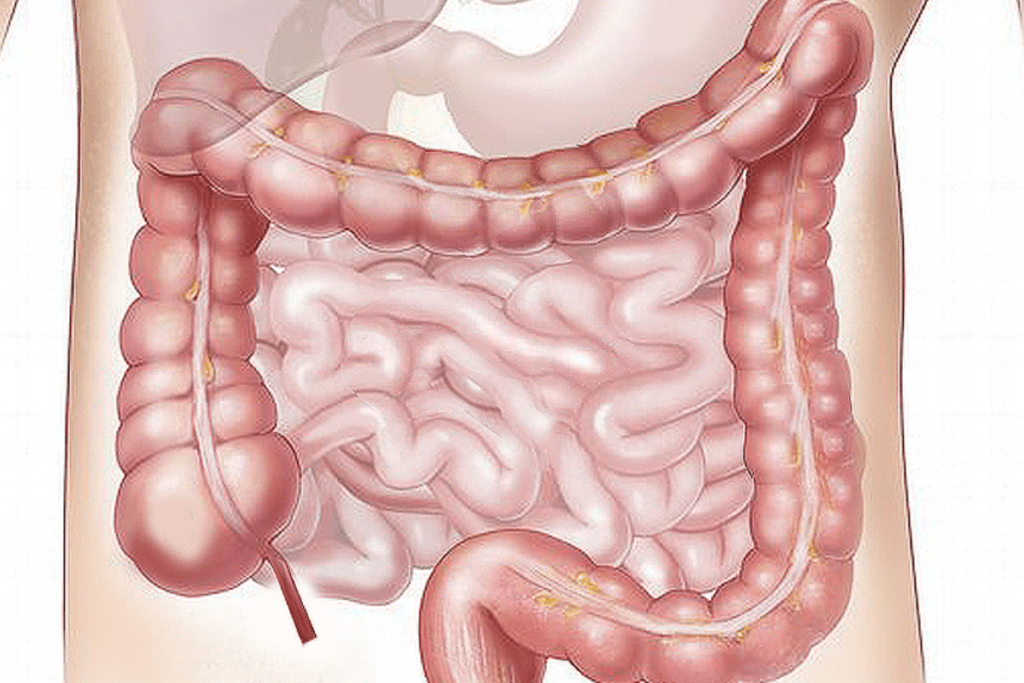
I was on antifungal herbs and medications. And probiotics. And antibiotic herbs. And things for leaky gut. And things to support my gut immune system.
I was even taking several gut mast cell supporting supplements. Plus, cromolyn sodium and Pepcid.
AND I was eating low FODMAP. On top of low histamine, low oxalate, and low lectin.
Even if you trend toward constipation instead of diarrhea, can you relate?
You just keep trying all kinds of things. And you are still stuck.
I was taking so much stuff! My gut was just really that messed up.
This is why I’m so grateful to have my good friend, Steve Wright in my corner. He’s one of the top gut experts out there.
You heard me talk about him when we discussed his HCL Guard+. It’s the best Betaine HCL product on the market. Steve first told me about it. And he recommended I try switching to it to see what happened.
So, I replaced my normal Betaine HCL I was taking with Steve’s HCL Guard +. And it helped a lot with the pain and bloating.
Yay!! 2 problems were better!
But the loose stools and diarrhea were still happening. Every day.
Does this happen for you? You get a couple things better? But there are still major issues?
Well, Steve told me to hang in there because he was working on making a really unique Butyrate supplement.
So, I hung in there. I knew from what he told me that this Butyrate would be pretty special.
Now, I’d already tried 3 types of butyrate (also called butyric acid) in the past. And I took those other butyrates for over 2 years. But I didn’t notice anything. So, eventually I stopped it.
But then, Steve told me that most butyrate on the market isn’t effective at all. Because of purity/toxin problems. And also because those products usually break down in the stomach acid. So they just don’t do much.
That’s why he set out to make a new type of butyrate supplement. To be the most helpful butyrate available for people with gut trouble like mine. And possibly like yours.
So, I finally got mine a few weeks ago. And I wanted to try it out for a while to see what happened.
But guess what? In 3 days, my diarrhea was gone. Completely gone!
I’ve had solid stool daily since then. This is the first time in my life to have regular bowel movements!

I know it might seem silly. But I was super excited about it! For a while, I was counting how many straight days of normal poop I had. Then celebrating 5 days of normal stool! Then 6 days of normal stool!
If you’ve dealt with significant constipation or diarrhea, I know you get why this felt like such a success to celebrate!
Plus, your whole GI tract is lined with Mast Cells. And a lot of histamine gets made in your gut if you have gut problems.
So, I knew that having normal poop was a big success for my mast cells and histamine levels.
And, here’s another cool thing I learned. Butyrate continues to help the gut even more over time. It’s like a cumulative effect. This is why I think my gut will just keep improving from here. I plan to keep taking it.
All of this is why I’m excited to share information about butyrate with you. So, you can check it out for yourself.
Let’s start with what butyrate is. And how butyrate can support the body (if it’s a good butyrate product that can actually reach the gut).
What is Butyrate – what to know if you have Mast Cell Activation Syndrome or Histamine Intolerance
Butyrate is what’s known as a short chain fatty acid (SCFA). These SCFAs are created when prebiotic fibers are fermented by the bacteria of the microbiome.
Some butyrate is found in the lower small intestine (ileum) and the colon.
However, the majority of it is in the colon. There, it provides energy to 60-70% of colon cells.
There are other SCFAs too. These include: acetate, propionate, pentanoic acid and hexanoic acid.
Short chain fatty acids in general are helpful for lowering inflammation.
And they help with metabolism.
Butyrate is by far the most beneficial and important of these SCFAs.
Butyrate is a type of “postbiotic.” A postbiotic is what is created when gut bacteria digest a prebiotic.
Okay, all of that information is great. But what does butyrate do for us?
What does Butyrate do – what to know if you have Mast Cell Activation Syndrome or Histamine Intolerance
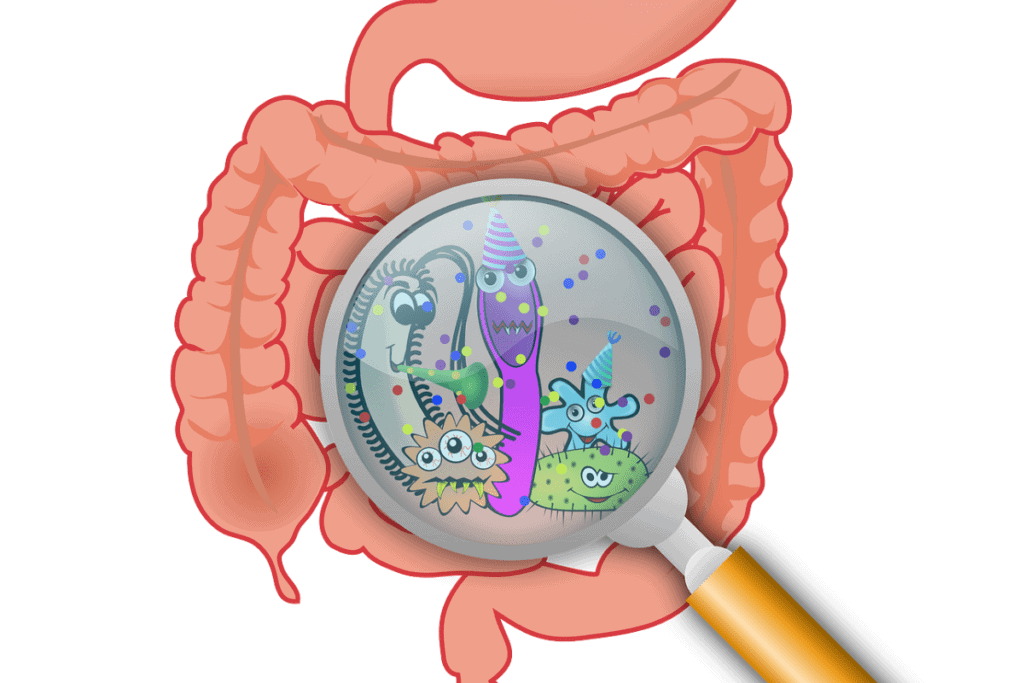
Butyrate has a huge beneficial effect on the gut. But it also benefits the whole body.
Here are some of the specific benefits of Butyrate for the gut:
- Improves tight junctions in leaky gut
- Improves the mucus layers of the gut
- Encourages good bacteria
- Helps gut cells kill pathogens
- Keeps the oxygen levels in the colon low (very important)
Butyrate has shown benefits for the whole body. For example,
- Supports mast cells and modulates histamine (how cool is that?)
- Supports the immune system by lowering inflammation and helping reduce autoimmunity
- May improve skin issues and encourage healthy bone density
- May help with allergies and asthma
- Can protect against alcohol-induced leaky gut and inflammation
- Alters gene expression in a way that is considered cancer protective
- In human cancer cell research, butyrate has shown anticancer effects
- In mice, studies showed improvement in insulin sensitivity, mitochondrial density, and satiety after eating
- In mice, research showed it helped the brain recover from strokes
- In mice, studies also showed it helps relieve symptoms of depression
Did you know health really stems from the gut?
And with all the benefits you saw above, we can say poor health starts with low butyrate.
But great health stems from good butyrate in the gut!
Let’s go in more depth…
How Butyrate Can Help Support the Gut– what to know if you have Mast Cell Activation Syndrome or Histamine Intolerance
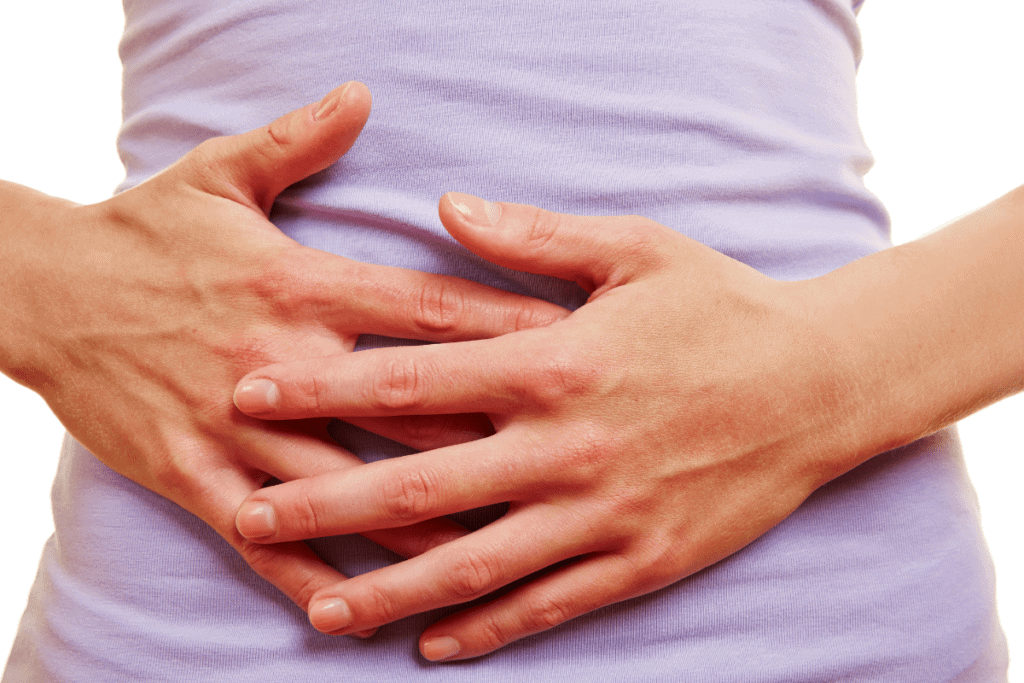
So, now you know that butyrate is a great support for the gut.
But why?
The reason for this is that butyrate works at all 4 levels of a leaky gut.
Leaky gut is something you absolutely do not want. It’s considered a root cause of autoimmunity, diabetes, obesity, brain degeneration, and more conditions.
Leaky gut is also a root cause of Mast Cell Activation!
Here are the 4 levels of leaky gut:
- Loosening of the tight junctions in the gut lining – allows food and other things to pass through to the bloodstream
- Loss of mucus layer in the gut
- Low good bacteria species
- Loss of ability to kill pathogens in the gut
According to research, supplementing with butyrate:
- Improves the tight junctions in the gut lining
- Supports healing mucus layers in the gut
- Increases good bacteria in the gut
- Supports cells to kill pathogens in the gut
To boil it down, butyrate supports the gut at the cellular level. That’s why it’s so helpful for the gut and digestive health.
Studies have shown that people who have the following conditions tend to be low in butyrate:
- Inflammatory Bowel Disease
- Crohn’s Disease
- Ulcerative Colitis
- Irritable Bowel Syndrome (IBS)
- IBS-C (constipation-dominant)
- IBS-D (diarrhea-dominant)
- Type 1 diabetes
- Obesity
- Rheumatoid Arthritis
- Parkinson’s Disease
- Children with allergies
Those who suffer from these tend to have lower or altered SCFAs compared to healthy controls.
Not only does butyrate support the gut. It’s also very helpful for mast cells and histamine levels.
Let’s take a look at this next. Because this is probably why you are here!
How Butyrate Can Help Mast Cells and Histamine Levels– what to know if you have Mast Cell Activation Syndrome or Histamine Intolerance
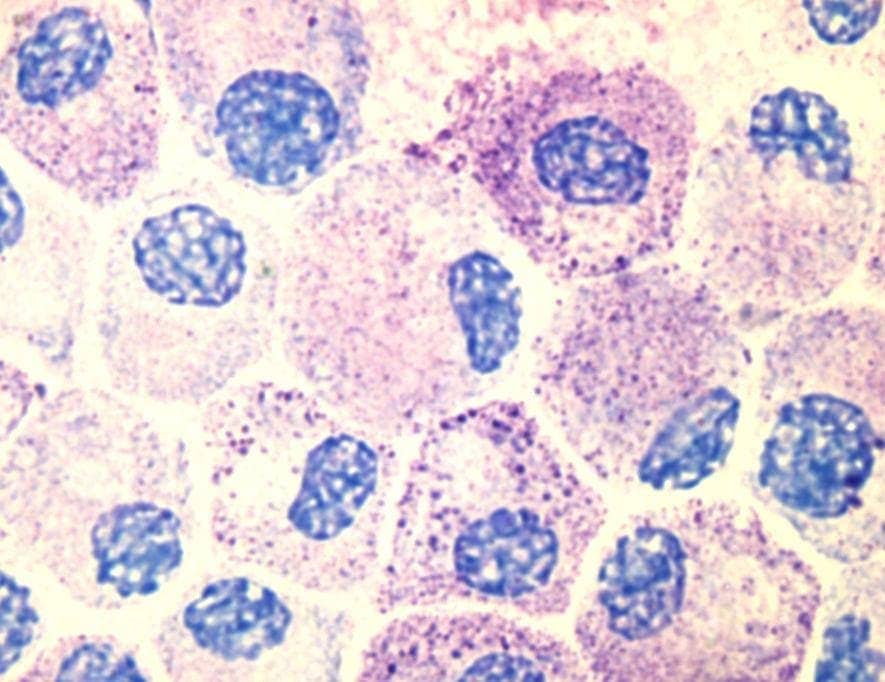
Butyrate supports healthy mast cells and histamine levels.
Many people with Mast Cell Activation Syndrome and Histamine Intolerance have tried Tributyrin-X™ with success.
And so far, there haven’t been any histamine issues. (Keep reading below for who should and shouldn’t take it.)
In fact, they were generally able to tolerate more foods.
Why is this? Research has shown that butyrate is actually a mast cell stabilizer.
How cool is that?
Research on human mast cells has shown that butyrate was able to suppress mast cell activation when the person was exposed to an allergen.
Another study showed butyrate helped with genetic expression on mast cell receptors to reduce human mast cell activation.
Supplementation with butyrate helped subjects tolerate more food in food allergy studies.
But the mast cells are just one part of the immune system.
Studies also show that butyrate calms the mast cells and helps balance and support the rest of the immune system.
Let’s look at this together next.
How Butyrate Can Help Support Immune System Activity– what to know if you have Mast Cell Activation Syndrome or Histamine Intolerance

Butyrate not only supports the gut health and mast cells. It also supports the rest of the immune system.
How does it do this?
Butyrate supports the immune system by its anti-inflammatory effects, as shown in studies. It also helps balance the activity of immune cells.
Butyrate has also been shown to improve the action of immune cells like T cells. And natural killer cells as well. This helps the body keep bacteria, viruses, and even cancer under control.
It has also been shown to benefit a type of cell called Treg (regulatory T) cells. These cells keep us from developing allergies and autoimmunity.
But immune support isn’t the only thing butyrate can do. (You’re going to love this next one!)
How Butyrate Can Help Support Healthy Weight Management – what to know if you have Mast Cell Activation Syndrome or Histamine Intolerance
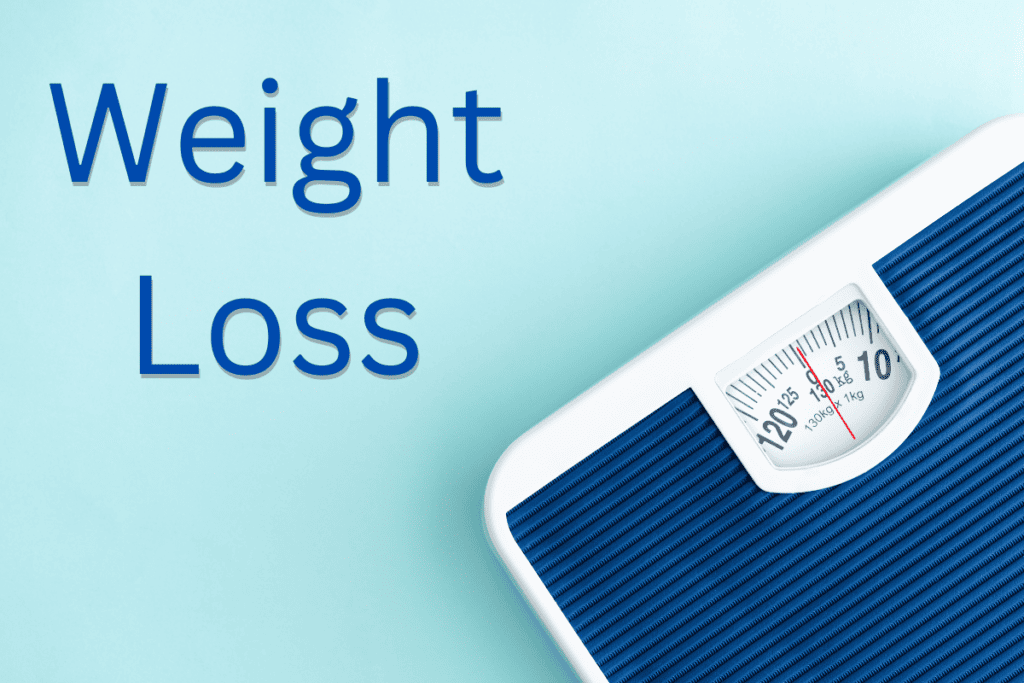
Did you know your gut health plays a big part in your weight? It’s true. If you have leaky gut or bad gut bacteria (dysbiosis), you’re more likely to suffer from obesity.
If you aren’t sure what dysbiosis is, dysbiosis is an imbalance of certain bacteria groups in the gut.
Now, there are 2 important groups we want to look at the balance of if we’re concerned about weight loss.
Firmicutes and Bacteroidetes are two major bacteria groups that are naturally in the human gut.
But, having more Firmicutes than Bacteroidetes is associated with weight gain and obesity.
Taking SCFAs (including butyrate) has been shown to increase Bacteroidetes. As a result, the scale is literally tipped toward leanness.
In a study of overweight people, taking butyrate-producing prebiotic supplements helped them lose weight.
But for those who are underweight, butyrate should help normalize weight. But not cause unnecessary weight loss.
But, how do you know whether or not you have healthy butyrate levels? We’ll cover that next.
How to have Healthy Butyrate Levels – what to know if you have Mast Cell Activation Syndrome or Histamine Intolerance
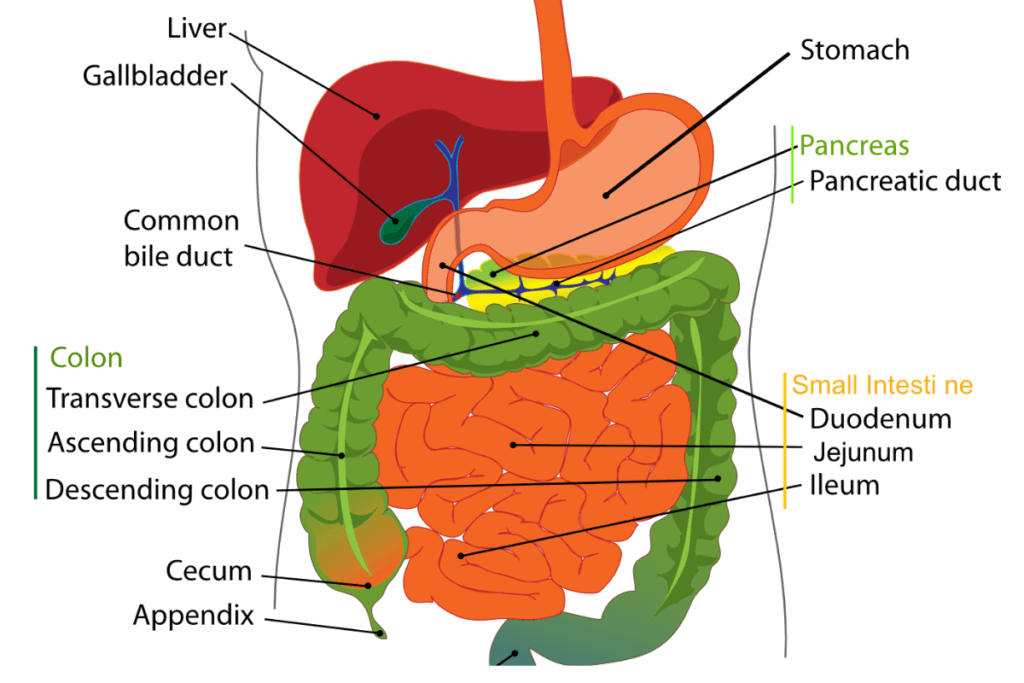
Stool testing can help you find out how much butyrate ends up in your stool.
But it’s not always super reliable.
So, it’s good to find out the signs of low butyrate.
Two things are needed for you to have good butyrate levels:
- The right microbiome species in your gut – to make butyrate from fermenting certain fibers (called prebiotics)
- Eating enough of these fibers or prebiotics – to be fermented
If you don’t have the right species or enough prebiotics in your diet, your butyrate production is going to suffer.
So, how do you fix your butyrate levels?
A few probiotic strains have been shown in research to potentially increase butyrate-producing bacteria. Unfortunately, though, most are just used in research – not available commercially.
Lactobacillus rhamnosus GG (LGG) is one strain of those strains that are available.
But for right now, there’s no specific probiotic recommendation that will absolutely increase your butyrate levels.
That leads us to focusing on fiber and prebiotics.
This means eating plenty of vegetables each week. And not the same ones, over and over. You have to get a good variety. It also means increasing your intake of resistant starch.
But what happens when your gut is so compromised that you don’t tolerate fiber and starch?
That can be a problem. Especially if you’ve had issues with FODMAPs, like me!
Those resistant starches were causing me terrible bloating, gas, and abdominal pain. I felt so stuck!
So, what if you don’t tolerate fiber? Or can’t eat loads of different vegetables because of food intolerances?
Maybe this is you: You’re…
- Already eating a lot of vegetables and fibers but not seeing changes
Or
- Unable to tolerate vegetables, starches, or prebiotics
Or
- Taking a probiotic but still have ongoing health issues
In all of these cases, it might make sense to try a butyrate supplement.
There are 2 options, if you’re wanting to supplement butyrate:
- Orally (By Mouth)
- Rectally (By Enema)
But, is rectal supplementation really more effective? It seems like it should be since the colon is where most of the body’s butyrate is located.
Unfortunately, it isn’t clear if rectal butyrate helps.
Studies are almost 50-50 split on whether it helps or does nothing. (Some researchers even say it could be harmful).
So that brings us to oral supplementation. In studies showing butyrate helps, people took between 300 to 4,500 mg a day. For both healthy people and those with health problems.
And repeated studies showed oral dosages of butyrate within that range are extremely safe.
The majority of these studies demonstrated powerful benefits to supplementing with butyrate.
So, butyrate is a great thing to supplement. But how do you choose the right one?
Choosing the right Butyrate – what to know if you have Mast Cell Activation Syndrome or Histamine Intolerance

There are a few different kinds of oral butyrate supplements on the market. What’s the difference? How do you know which one to try?
Well, here’s what you need to know…
There are 4 major factors to consider when choosing the right supplement:
- Type of butyrate
- Type of butyrate delivery
- Purity: Are there additives and fillers?
- Ease of Use (or lack of smell)
These 4 factors will help clear up confusion in the butyrate supplement market. They are listed in order of importance. Here we go…
Factor #1: Type of Supplemental Butyrate
Butyrate, as a molecule, is very fragile and stinky. For that reason, the early supplements would bond butyric acid with a salt. That would help stabilize it.
However, after testing it in animals for decades, researchers discovered that tributyrin (unbonded pure butyric acid) was more potent. It also didn’t require digestion to break apart the chemical bonds.
Plus, some research suggests tributyrin is safer for human consumption than butyrate salts.
But there are still 3 problems with tributyrin: It’s a liquid, it’s fragile, and it’s smelly.
Summary:
- First generation butyrate supplements used bonded salts.
- These bonded salts appear to be less potent, smell bad, and may be less safe for humans.
- Next generation butyrate supplements use the more potent tributyrin.
- But they have to overcome liquid, stability, and smell problems.
Factor #2: Type of butyrate delivery
For tributyrin to work in the body, it has to be protected from stomach acid. If it isn’t, the stomach will break it down and it won’t reach the gut.
This means if it doesn’t make it to the gut, it is really useless. And a waste of money.
Don’t you get so tired of wasting money on poor quality supplements that don’t work?
So, scientists tried various types of enteric delivery methods:
- Drying tributyrin liquid into a powder with carrier agents
- Creating a liposomal protection
- Creating next generation enteric capsules that can make it past the stomach acid
Several brands on the market use tributyrin dried into a powder. You’ll see these trademark names on the back of the supplement bottle: CyLoc™, DexKey™, and CoreBiome™.
Unfortunately, this drying process uses many undesired drying additives. And these additives can be mast cell and histamine triggers – not a good thing for us.
Another way is to protect butyrate by putting it into a liposomal formula. Sunbutyrate™ is an example of this process. It’s a clever way to keep the molecule pure, potent, and liquid.
However, you still need to mask the flavor and smell. And they usually use mast cell triggering agents.
You also have to rely on good digestion so that it’s broken down properly. But most of us interested in butyrate don’t have good digestion!
So, the best delivery is called enteric delivery. This makes it through the stomach acid. And then dissolves quickly in the small intestine.
This is something I really like about Steve’s Tributyrin-X™. It’s in a type of enteric softgel called PXRcap™.
This is one of the reasons why Tributyrin-X™ is such an innovative product that I wanted to tell you about.
Factor #3: Purity: Are there additives and fillers?
Because of the process by which they are made, other butyrate supplements often use additives and fillers. That’s what happens when tributyrin is ground into a powder.
And these additives and fillers again can be big mast cell/histamine triggers! Not helpful if you have Mast Cell Activation Syndrome or Histamine Intolerance.
That’s another reason why I love Steve’s Tributyrin-X. He made it to be a 99.9% pure tributyrin liquid. This means there are no fillers or additives. This is good news for us!
This keeps the tributyrin in its pure, unprocessed state.
Factor #4: Ease of Use (or lack of smell)
Butyrate naturally smells very strong. And this often means people don’t want to use them.
That doesn’t help if you really need it!
The good news is there’s a new softgel called PXRcap™. It makes the butyrate just taste and smell neutral. Truly.
Stomach acid studies on this softgel show zero leakage so you can’t taste it. This softgel locks in the smell and taste so you don’t notice it at all.
Not only that, but it’s easy to swallow.
It also means this tributyrin is easy to take with you. Wherever you go.
How to take Tributyrin-X™ – what to know if you have Mast Cell Activation Syndrome or Histamine Intolerance
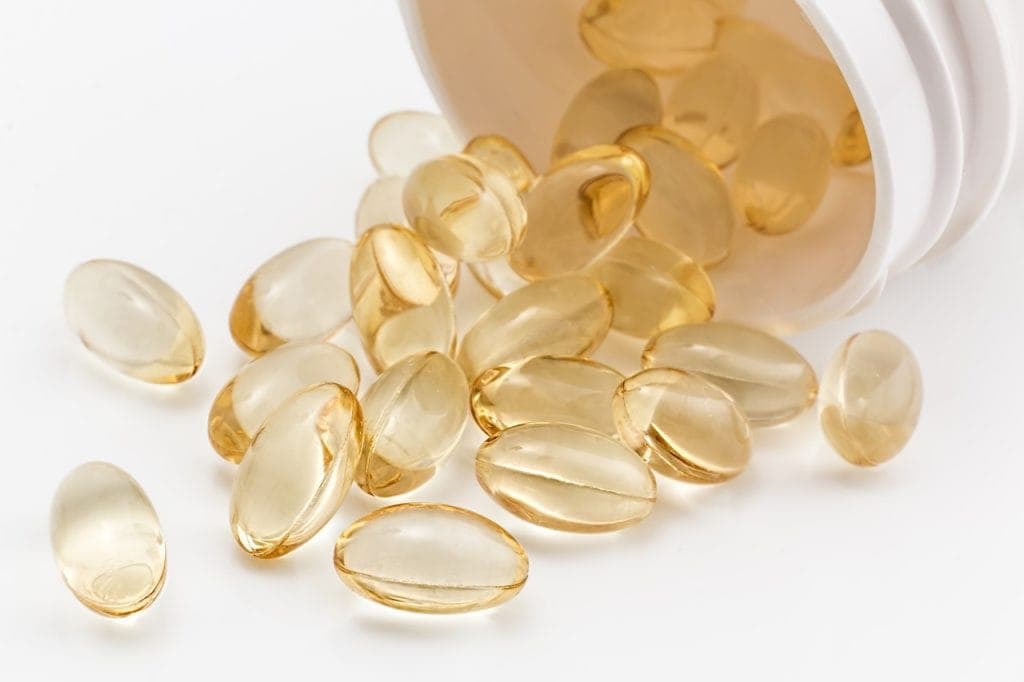
If you have Mast Cell Activation Syndrome or Histamine Intolerance, you may be used to opening up capsules so you can start with sprinkles or a drop. That’s what I recommend 99% of the time.
In most cases, this is a good way to begin any new supplement.
However, you don’t want to do this with Tributyrin-X™. Butyrate naturally smells very, very strong.
So with Tributyrin-X™ don’t open the softgel. Just start with 1 capsule a day.
Here’s how to gradually ramp up your butyrate:
- Start with 1 capsule a day with food.
Do that for 3-5 days.
- Next, go with 1 capsule 2 times a day with food.
Do that for 3-5 more days.
- Then, increase to 1 capsule 3 times a day with food.
See how you feel.
Most people stay at a dosage of 2 to 4 capsules a day. However, some do extremely well at 6 capsules per day.
You’d have to experiment to see what works best for you.
How long until you see results? You’re likely to notice some positive changes within a few days of starting. Most people notice changes within 3 days.
At day 7, they report even more improvement. By 14 days, they are feeling vastly better. So, usually you’ll see marked results within 14 days.
How long should you take it? Most people who are wanting to heal a messed up gut are on it for 6 to 12 months. Or even longer.
After all, our gut is being challenged daily with stress, toxins, and exposure to bacteria and viruses.
Combined with a healthy, low histamine diet, Tributyrin-X™ can really support your gut.
And get you back on track to tolerating more healthy and delicious food.
Unfortunately, this is a boutique product. Meaning it’s made in small batches. And sometimes it runs out. This is why, once I knew it was working, I got extra so I wouldn’t run out.
And here’s the great thing you want to know. My good friend, Steve knows what it’s like to have a cabinet full of supplements you can’t use.
Steve doesn’t want anyone to be stuck with something that doesn’t work for them. This is why I’m really grateful he offers a 60-day money back, no questions asked guarantee!
That’s nearly unheard of in the supplement world!
If you’re ready to give butyrate a shot, you can get the best one on the market here:
Get Tributyrin-X™ Here
Who Should Consider Butyrate – what to know if you have Mast Cell Activation Syndrome or Histamine Intolerance

We covered a lot of information on the benefits of Butyrate. Here’s a recap on just a few of the things research showed butyrate can be helpful for:
- Leaky gut support
- Constipation or Diarrhea support
- Immune support
- Mast cell calming support
- Histamine lowering support
- Weight balancing support
- Healthy Gut Bacteria support
So, if you are looking for this kind of support, it may be helpful for you.
(Now, this isn’t a miracle fix – you still have to do the other things to support your gut, like eating healthy, avoiding triggers, and the other mast cell supports we talk about here.)
Get Tributyrin-X™ Here
Who Shouldn’t take Tributyrin-X™ – what to know if you have Mast Cell Activation Syndrome or Histamine Intolerance
You shouldn’t take Tributyrin-X™ if you have alpha-gal (an extremely rare condition).
The reason for this is that the capsules are made of gelatin. People with alpha-gal are allergic to any product made from mammals. (Like gelatin).
But, again, Alpha gal is extremely rare.
If you aren’t tolerating any supplements at all yet… then be sure to work on your nervous system. And check for mold toxicity.
But so far, sensitive people tend to do well with it.
The good news is that Tributyrin-X™ is free of:
- Gluten
- Dairy
- Soy
- GMO’s
- Flavorings
- Mast Cell Triggers
It is also:
- low histamine
- low lectin
- low oxalate
- low FODMAP
- salicylate-free
What if it doesn’t work for you? Not to worry! Steve’s company, Healthy Gut Nutrients, has a 60-day Money Back Guarantee.
Get Tributyrin-X™ Here
FAQs about Tributyrin-X™ – what to know if you have Mast Cell Activation Syndrome or Histamine Intolerance

Q: Who is Tributyrin-X™ made for?
A: Tributyrin-X™ is for anyone looking for support for:
- Digestive health (the microbiome)
- Lowering inflammation
- The immune system
- Metabolism and weight control
- Mast cell support
- Histamine support
Q: How Long Until I See Results?
A: You might notice some positive changes within a few days of starting. Most people notice something by day 3.
After a week is when you’re likely to notice more.
And at day 14, things are usually changing more.
Beyond that, there seems to be a cumulative beneficial effect.
Q: Does Tributyrin-X™ contain Gluten, Dairy, Soy, Sugar, or GMO ingredients?
A: No. Tributyrin-X™ does NOT contain any of these: Gluten, Dairy, Soy, Sugar, or GMOs.
Q: What is the shelf life of Tributyrin-X™?
A: A bottle of Tributyrin-X™ is good for 2 years from the manufacturing date. That means a bottle ordered today will be good for at least 18 or 20 months. Depending on the date on the bottle. So, you have a good 1 ½ years to use it.
Get Tributyrin-X™ Here
And to learn more about supplementation for Mast Cell Activation Syndrome and Histamine Intolerance, sign up for my Top 8 Mast Cell Supporting Supplements Master Class:
More Mast Cell Resources
- Mast Cells and Mast Cell Activation Syndrome 101: What to know if you have Mast Cell Activation Syndrome or Histamine Intolerance
- What Is Histamine Intolerance?
- Enzymes, Short-Chain Fatty Acids (SCFA’s), and Gut Health in SIBO, Mast Cell Activation Syndrome, and Histamine Intolerance
- Are Coffee Enemas Safe for Mast Cell Activation Syndrome?
*Some links in this website are affiliate links, which means Mast Cell 360 may make a very small commission if you purchase through the link. It never costs you any more to purchase through the links, and we try to find the best deals we can. We only recommend products that we love and use personally or use in the Mast Cell 360 practice. Any commissions help support the newsletter, website, and ongoing research so Mast Cell 360 can continue to offer you free tips, recipes, and info. Thank you for your support!
References on Tributyrin-X™ and Fresh Herbs for Mast Cell Activation Syndrome or Histamine Intolerance
Aguilar-Toala J.E., Garcia-Varela R., Garcia H.S., Mata-Haro V., Gonzalez-Cordova A.F., Vallejo-Cordoba B., Hernandez-Mendoza A.
(2018). Postbiotics: An evolving term within the functional foods field. Trends in Food Science and Technology, 75, 105-114.
Chakraborti CK. New-found link between microbiota and obesity. World J Gastrointest Pathophysiol. 2015;6(4):110-119. doi:10.4291/wjgp.v6.i4.110
Folkerts, J, Redegeld, F, Folkerts, G, et al. Butyrate inhibits human mast cell activation via epigenetic regulation of FcεRI‐mediated signaling. Allergy. 2020; 75: 1966– 1978. https://doi.org/10.1111/all.14254
Folkerts, J., Redegeld, F., Folkerts, G., Blokhuis, B., van den Berg, M., de Bruijn, M., van IJcken, W., Junt, T., Tam, S. Y., Galli, S. J., Hendriks, R. W., Stadhouders, R., & Maurer, M. (2020). Butyrate inhibits human mast cell activation via epigenetic regulation of FcεRI-mediated signaling. Allergy, 75(8), 1966–1978. https://doi.org/10.1111/all.14254
Folkerts, J., Stadhouders, R., Redegeld, F. A., Tam, S. Y., Hendriks, R. W., Galli, S. J., & Maurer, M. (2018). Effect of Dietary Fiber and Metabolites on Mast Cell Activation and Mast Cell-Associated Diseases. Frontiers in immunology, 9, 1067. https://doi.org/10.3389/fimmu.2018.01067
Kespohl M, Vachharajani N, Luu M, et al. The Microbial Metabolite Butyrate Induces Expression of Th1-Associated Factors in CD4+ T Cells. Front Immunol. 2017;8:1036. Published 2017 Aug 28. doi:10.3389/fimmu.2017.01036
Kroesen M, Gielen P, Brok IC, Armandari I, Hoogerbrugge PM, Adema GJ. HDAC inhibitors and immunotherapy; a double edged sword?. Oncotarget. 2014;5(16):6558-6572. doi:10.18632/oncotarget.2289
Licciardi PV, Karagiannis TC. Regulation of immune responses by histone deacetylase inhibitors. ISRN Hematol. 2012;2012:690901. doi:10.5402/2012/690901
Marlotte M. Vonk, Bart R. J. Blokhuis, Mara A. P. Diks, Laura Wagenaar, Joost J. Smit, Raymond H. H. Pieters, Johan Garssen, Léon M. J. Knippels, Betty C. A. M. van Esch, “Butyrate Enhances Desensitization Induced by Oral Immunotherapy in Cow’s Milk Allergic Mice”, Mediators of Inflammation, vol. 2019, Article ID 9062537, 12 pages, 2019. https://doi.org/10.1155/2019/9062537
Ríos-Covián D, Ruas-Madiedo P, Margolles A, Gueimonde M, de Los Reyes-Gavilán CG, Salazar N. Intestinal Short Chain Fatty Acids and their Link with Diet and Human Health. Front Microbiol. 2016;7:185. Published 2016 Feb 17. doi:10.3389/fmicb.2016.00185
Solah VA, Kerr DA, Hunt WJ, et al. Effect of Fibre Supplementation on Body Weight and Composition, Frequency of Eating and Dietary Choice in Overweight Individuals [published correction appears in Nutrients. 2017 Apr 20;9(4):]. Nutrients. 2017;9(2):149. Published 2017 Feb 16. doi:10.3390/nu9020149
Schink, M., Konturek, P. C., Tietz, E., Dieterich, W., Pinzer, T. C., Wirtz, S., Neurath, M. F., & Zopf, Y. (2018). Microbial patterns in patients with histamine intolerance. Journal of physiology and pharmacology : an official journal of the Polish Physiological Society, 69(4), 10.26402/jpp.2018.4.09. https://doi.org/10.26402/jpp.2018.4.09
Wang, C. C., Wu, H., Lin, F. H., Gong, R., Xie, F., Peng, Y., Feng, J., & Hu, C. H. (2018). Sodium butyrate enhances intestinal integrity, inhibits mast cell activation, inflammatory mediator production and JNK signaling pathway in weaned pigs. Innate immunity, 24(1), 40–46. https://doi.org/10.1177/1753425917741970




Is it ok for sibo? Other butyrate can be an issue for some gut problems. Thanks
Hi Sasha,
Beth says, “I have SIBO, and it was a game changer for me. Yes, it should be safe with SIBO. With constipation, less is usually better (like 1-2 capsules/day) and with diarrhea more sometimes is better (like 3-4/day). Some people have gone up to 6/day. So start slow and see how you do, if you try it.”
It is my understanding and experience that gelatin is a histamine source. I have had reactions to supplements in gelatin capsules in the past. Since there is a money back guarantee, I’m willing to see if the effect of the butyrate is enough to offset the histamine trigger of the gelatin. (I just hate the risk of feeling worse for a week or so:( Do you tolerate gelatin?
Hi Colleen,
You are right that gelatin as a food source can be a problem – like making gelatin as a dessert. In capsules it is rarely a problem except for extremely sensitive people who are reacting to everything or the very rare Alpha-Gal syndrome. Beth is able to tolerate the amount of gelatin in this capsule. We can’t say what may or may not work for you without knowing your history, but if you do introduce anything new, it is best to go slowly.
Do you still need the HCL ? With this new supplement. I have low stomach acid along with alot of the other symptoms.
They serve different purposes. Check out Beth’s Facebook Live for the great interview corresponding to this article. They talk about the HCL and the Tributyrin-X
https://www.facebook.com/MastCell360/videos/333977577861545/?__xts__%5B0%5D=68.ARCXRcDajSGObACTwspizSOMr45bjMdtqwJzSXIJTE0PRooSfXH9bsphQ9H7LiPSOYtqEasERU2pWiI3nthjZ1-XwXtCS1McaPaKg_gxdZloEFqvgQDqVbQPdZyBAv9LRTf7aqEKWJ19BoCYcLj1WBfkOCglRr-bwmrXWCVcwhvBlMcYYEMm2u3pSTUTvrrZo064UkbeXicsAOHWnno2UGb1xRQa-CpOCRFS7qRhJD-_ycrjwqDL8MwBpGkb713TldrTSPrp1B26faoCW29x4SMOjVzgcyrAdeh27ykAJFbAnB6Eh9Dytz3bGnqa-4eE_U5DME93o8U9TyE54MVjGjUS_mXCIMC1m-g&__tn__=-R
Do you know if this product can be used by a child (7.5 years) as long as they are capable of swallowing capsules? After months of research and appointments and treatments, I have come to discover it might very well be a histamine intolerance which was triggered by a virus we had. We seem to have mast cell issues flaring up (he has always been extremely healthy but I score 15 on the MCAS survey I took recently, my whole life is a health battle but much improved from just living heathier the last few years) and it is causing stubborn rash on him and other issues with me. We have both started taking Ancestral Supplements kidney (high in DAO) and thymus and his rash has improved a lot, so I am extremely hopeful it might be due to that. We are being a little more conscious of histamine foods. I am reading this now on your blog, and we want to give this butyrate supplement a try. You recommend 1 capsule at meal and ramp up to 1 capsule, for each meal so 3x a day. Should I give the same amount to him too or do you have a different recommended dosing for children? (Or are the studies of butyrate even considering children. I am assuming burtyrate must be fairly safe if you get it in food normally such as grass fed butter.) The Ancestral Supplements folks said their health practitioners recommmended their capsules dosed at 1 capsule per 15-20 lbs so their dosing is different for kids vs adults.
Hi Angie,
In Beth’s interview with Steve Wright, this is what they said:
Beth and Steve indicated that there were no known contraindications for children, but the dosing would have to be modified to smaller amounts. Be sure to talk to your pediatrician to be sure this is right for you and your child.
The TributyrinX contains sorbitol. My understanding is that sorbitol isn’t good for those with MCAS.
Hi Annette,
In larger quantities, you are correct about sorbitol. When Beth talked with Steve Wright, he said that there is less sorbitol in one serving of the TributyrinX than you would find in one singular berry. Beth has not had any issues with the sorbitol when she has taken it. Of course, everyone’s tolerances are different. If you have any concerns, you can talk to your doctor to be sure. Also, anytime you introduce anything new, be sure to start slowly and gradually build up.
I purchased Tributyrin-X with high hopes based on this article. I took one capsule a day for about a week and during the week my digestive system started to slow down, not good for someone who already has constipation issues. I increased my magnesium intake to counter the constipating affects. By the end of a week and a half, it made my entire digestive system freeze up and gave me horrible constipation that not even mega doses of magnesium citrate and drowning myself in water have fixed. I have been off of Tributyrin-X for two days and my digestive system is still not working correctly.
I read on the first comment that it is effective for SIBO but I read somewhere that people have issue with fodmap has too much short chain fatty acid in their gut and it causes bloating, gas and etc. So why is taking TributyrinX effective for SIBO?? If you could tell me the mechanism it would be appreciated.
Hi Rose,
This is taken from another of our blog posts: “Short-chain fatty acids are critical for gut health. Butyrate is one kind of short-chain fatty acid. And it’s a good mast cell stabilizer! Short-chain fatty acids (SCFAs), including butyrate, help because they feed the good bacteria. This is a huge help if you have to be low FODMAP. This is because high FODMAP foods feed your good gut bacteria. It’s why they’re so important.”
You can read the whole article here if you are interested: https://mastcell360.com/frequently-asked-questions-the-gut-sibo-mast-cell-activation-syndrome-and-histamine-intolerance/
Best regards, Suz, MC360
WOW the first part of your article is 100% me! Loose watery bowels since a young child, a true colitis (straight water out the backside) when I was 23, almost had a bag put on me – then did a carb free diet after 9 months of lots of pills with no change – the doc thought I was crazy but OMG 3 months later I started have some soft bowel movements. All my life I have combatted this, started taking probiotics back in the 90’s before it became the rage. Moved to France 5 years ago and I got better – much of the food here has no additives, is cleaner no hormones or antibiotics in meat etc. Kept doing research and trust me when I say someone could retire on what I have spent on supplements and alternative docs/meds. I take S. boulardii as a probiotic, started taking Butyric Acid made in Germany 2 weeks ago, says Sodu on it so assume it is made with salts, but most German supplements are pure – not sure I can get Steve’s product here. One of the biggest changes I noticed though was when I started taking a multi amino acid pill – FINALLY a marked difference and most of the time fairly regular bowel movements on a consistent basis. I tried SO many different digestive enzymes and saw just a little improvement that they were not worth taking. I take DAO and Quercetin to help eliminate histamine with charcoal so it binds and is eliminated – I just found out in June that I have histamine intolerance, and also found a functional medicine doc – quite the feat here to find one – I am awaiting gut test results and see him again next month. Now I need to find out if I also have Mast Cell Marcs and other problems associated with histamine. I will be 71 next month and have been “different” my entire life – I have a pituitary tumor and that causes the entire endocrine system to be out of whack – have Hashimotos and thyroid/adrenal problems as well as hormones always being off kilter. I am hoping maybe that I can live what is left of my life a little bit better. It is SO wrong that medicine is NOT about fixing, but just about throwing pills at people, though less so in France. But still most docs just want to fix not get to the root cause. Thanks for writing this.
Thank you so much for sharing your experience with us! I do think that Healthy Gut(Steve’s company) ships abroad, but I’m not 100% sure of all the countries or what the shipping fee would be. But I’m so glad you found some options that are readily available to you and working for you! That’s great! Wishing you all the best as you continue to find the answers you need. –Suz
BodyBio’s butyrate supplements — especially the sodium/potassium version — works great for me. Not sure why you’d recommend such a pricey supp, unless of course for the commissions?
Also Clostridium butyricum (Miyarisan) is a probiotic from Japan (and available in the US) that produces butyrate naturally.
There are other options.